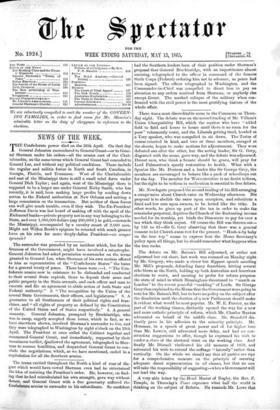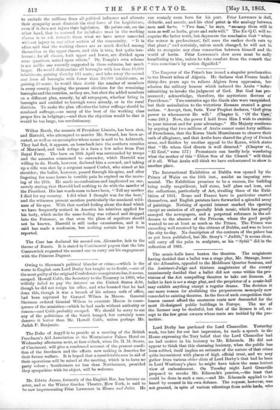A very able letter by the Head Master of Rugby,
the Rev. F. Temple, in Thursday's Times expresses what half the world is thinking on the subject of Reform. He reminds Mr. Lowe that to exclude the millions from all political influence and alienate their sympathy must diminish the vital force of the Legislature, even if it does not injure their legislation. Be puirits out, on the other hand, that to coats:aid for indefinite trust in the working classes is to ask towards them what we have siekver conceded without injury to any other section of the community. "It is often said that the working classes are as much divided among themselves as the upper classes, and this is true, but quite irre- levant; for all classes, both upper and lower, are divided upon some questions, united upon others." Dr. Temple's own scheme is not unlike one recently suggested in these columns, but much larger. He would disfranchise all boroughs with less than 10,000 inhabitants, gaining thereby 111 seats ; and take away the second seat from all boroughs with fewer than 30,000 inhabitants, so gaining 50 seats ; he would then double the number of members in every county, keeping the present elections for the remainieg boroughs and the counties, as they- are, but elect the added members on a different plan, namely, by all ratepayers, whether living in boroughs and entitled to borough votes already, or in the rural districts. To make the plan effective the latter suffrage should be manhood suffrage,—as many of -the best of the working class proper live in lodgings ;—and then the objection would be that it would be too large, too revolutionary.































